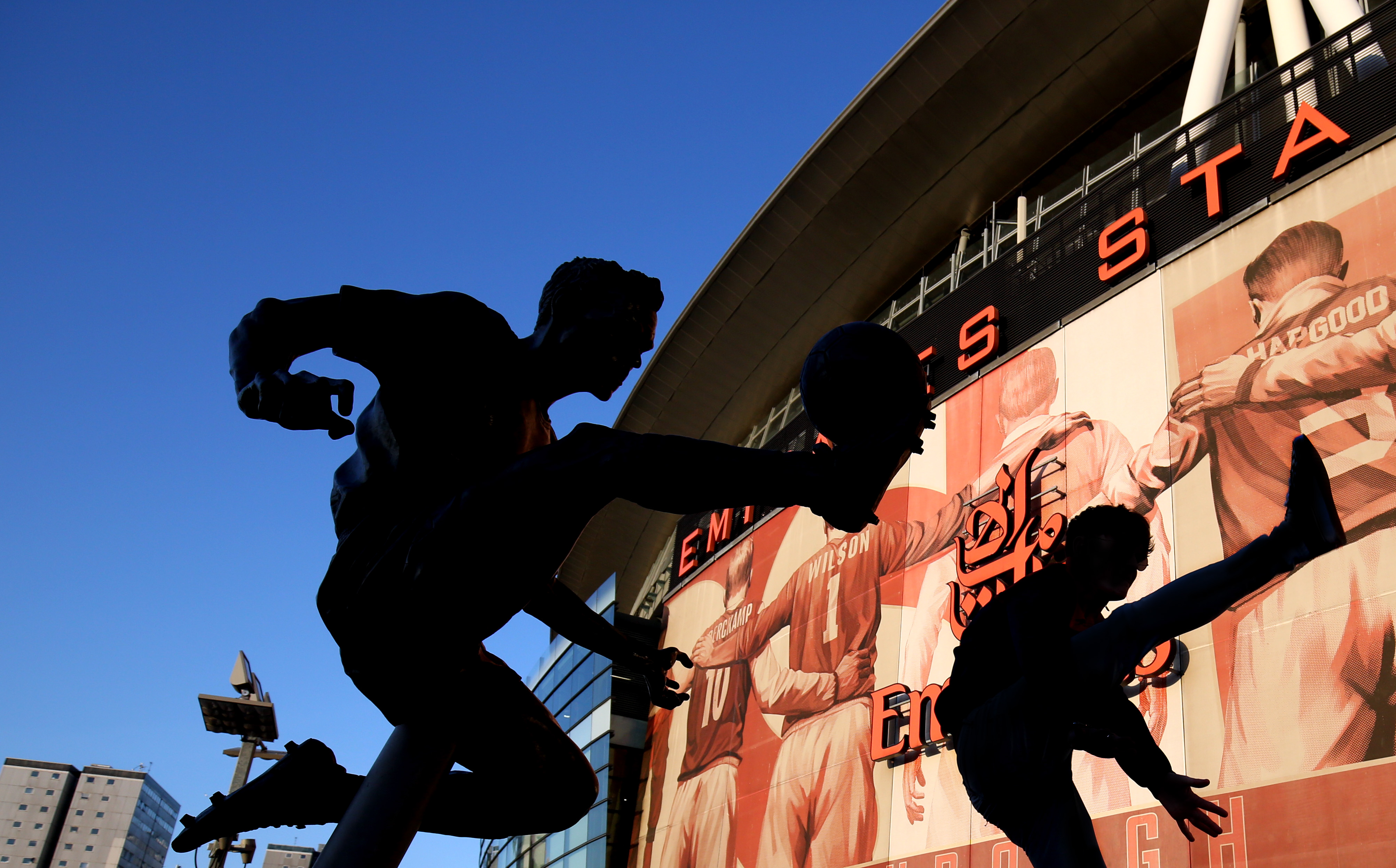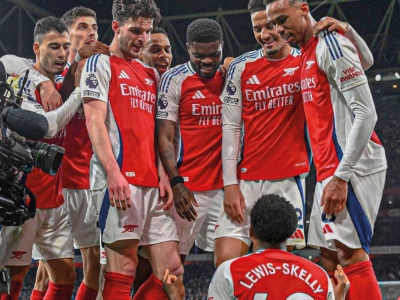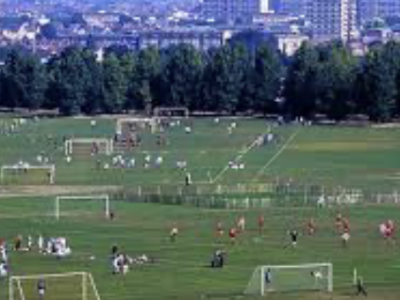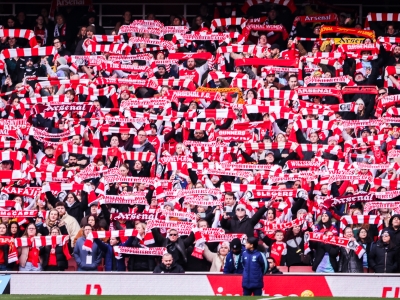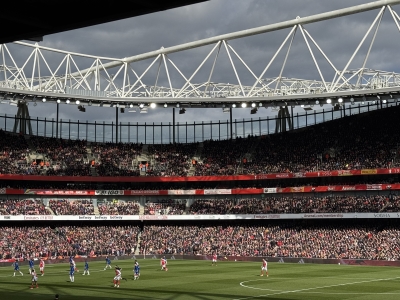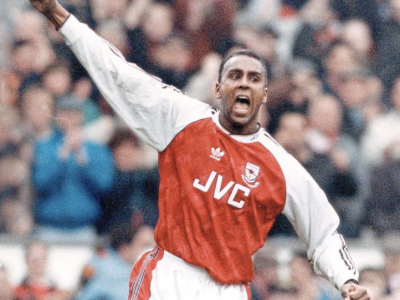Read Robery Exley's in-depth review of 2020: Here's the tumultuous month of March as all changed, changed utterly...
To me, there’s always something of “holy grail” aspect about the month of March.
At one place I worked at, I convinced them to carry on the countdown board to Christmas after Christmas, instead counting down to the 21stMarch as the first day of Spring.
The idea of days suddenly being longer than nights and the promise of better weather and lower heating bills somewhat blinds you to the fact that bad things can happen in the spring and that the days you’ve sought after all through the winter months might actually turn out darker than the days you’ve just left behind. Ladies and gentlemen, welcome to March 2020.
1st March 2020: As the month starts, it was revealed that a new confirmed case of Covid-19 from Essex had not previously travelled to any other country which at this point had been affected by the virus. This now indicated that Covid-19 was now passing between people within the UK.
2nd March 2020: Arsenal headed to Fratton Park to face Portsmouth in the Fifth Round of the FA Cup. Goals for Sokratis and Eddie Nketia gave Arsenal a 2-0 victory to progress to the last eight of the competition and somewhat keeping the hope alive for the season that a route back into Europe and obtaining the club’s first post-Wenger trophy could be obtained through the FA Cup.
3rd March 2020: On the same day that SAGE advises against greetings such as shaking hands and hugging to avoid the transmission of Covd-19, PM Boris Johnson states that “I was at a hospital the other night where I think there were a few coronavirus patients and I shook hands with everybody, you will be pleased to know, and I continue to shake hands” (make of that what you will!).
Later that day, Liverpool crash out of the FA Cup with a 0-2 defeat to Chelsea. In the press conference afterwards, a journalist attempts to ask Liverpool boss Jurgen Klopp whether he fears Covid-19 would affect his team, leading to Klopp to abruptly request for the media not to ask such questions of him regarding such a serious matter, as he concedes that the subject matter is not within his area of expertise.
5th March 2020: The two first confirmed Covid-19 related deaths within the UK had occurred on the same day, involving a woman in her 70s from Reading and a man in his 80s from Milton Keynes. That same day, PM Boris Johnson appears on ‘This Morning’ and questioned by hosts Phillip Schofield and Holly Willoughby with regard to the Government’s approach to dealing with the Covid-19 crisis. Johnson stated that: “Perhaps you could take it on the chin; take it all in one go and allow the disease as it were to move through the population”, which strongly suggested that the British government were adopting a policy of attempting to build up “herd immunity” against the virus.
6th March 2020: A YouGov Poll shows that around one in five Brits feel that Covid-19 is now a “Major threat” to the UK, 50% feel it’s a “Moderate threat”, though only 2% feel it to be “No threat at all”
7th March 2020: Arsenal faced a visit from West Ham United. Unbeknown to anyone at this point, this would be the last time that Arsenal would play in front of a full house for a long time (the full duration of which, even at this point, we don’t even know!). In the UK, the number of confirmed Covid-19 cases has now risen to over 200. I already had a £50 ticket for the game, purchased over a month prior. Once again, at this point no-one knows for sure whether Covid-19 is going to significantly strike the UK, so there’s an inner conflict. Attend and take the risk (which at this point you don’t know is going to be large or small) or blow £50 for the sake of the peace of mind of 100% certainty against catching the Covid. The fact the game isn’t shown at all in the UK means I pick the former option.
In the week before the game, a friend of mine also attending the game manages to twist my rubber arm by inviting me to pre and post-match drinks. Once again, though the mask has been worn on the tube throughout the week, it’s not following me to the Emirates Stadium. At this point, I’m still far too reserved to wear the thing in front of people I know in case they think I’m some sort of nutcase. I do though wear a scarf over my face whilst on the fifteen-minute tube journey from home to the ground (I don’t do this at the ground though. As I’m in attendance with people I know, I don’t want them to think I’m mad).
My friend suggests meeting in the Crown Bar & Café on Holloway Road, not far from where The George pub used to be. This tiny bar however is utterly rammed and there’s no way I’m heading in there. I managed to convince the party to head to El Comandante – a Che Guevara theme pub over on Annette Road close by to the stadium, which has plenty of room to stand out on the pavement outside of the pub.
In pre-match pub conversation, one of our group reveals that they actually caught Swine Flu and had to self-isolate for 14 days during the 2009-2010 pandemic which most people I came into contact with at the time considered to be somewhat of a “joke” rather than an actual threat to public health. The person in question I knew throughout the whole of this period, but had no idea they came down it. This revelation makes me reassess just how safe we actually are from such pandemics and while people had been sharing joke emails in 2009 about Swine Flu, the fine line between going about daily life and being engulfed in such a health crisis is really just down to luck and how with this coming virus, we in Britain this time might well not be so lucky enough just to laugh this one off and get on with our lives as normal like we did in 2009-10.
As for the game itself, an Alex Lacazette goal previously disallowed for offside on the advice of lineswoman Sian Massey was overturned by VAR, as Arsenal ran out 1-0 winners. After the game, it was back to El Comandante for more drinking which continued until last orders. Since obtaining a motor vehicle for the first time in a decade the previous Autumn, my general overall alcohol intake had been greatly reduced ever since as I regain the joy of weekend driving. So the following day was the hang over from hell.
But having been in such a crowded public place after exercising caution over the previous week or so, the usual guilt and paranoia which comes from a hangover is ramped up tenfold, along with the feeling that pretty soon I may well come down with symptoms from the dreaded virus that’s been wreaking havoc over on the other side of the globe and over in Italy (I even go and panic buy a load of tin food and put £50 on the gas and electric metre, just in case I’m suddenly unable to leave the house). One thing is for sure though, in the coming week ahead, the news relating to Covid-19 within the UK would start to develop at an exponential rate.
9th March 2020: Such is the extent to which Covid-19 is spreading across Italy, the previous day, the national government had quarantined up to 16 million people within the Lombardy region as well as in 14 other central and northern provinces, with special permission needed for Italian residents to travel. The number of confirmed cases in Italy rose from 1,200 to 5,883 over the weekend. By Monday, this lockdown had extended to the whole of Italy. As a result, all sports events within the country were cancelled until 3rd April.
Not only that, this was also the day highlighted that the British government’s scientific advisers. SPI-M had warned the Government to abandon its mitigation approach for intense control measures – such as lockdown – to respond to growing Covid-19 transmission within the UK. The warning however was not heeded.
10th March 2020: As France confirms 382 cases of Covid-19 and 8 Covid-19 related deaths, the French Football Association announced all matches in Ligues 1 and 2 would be played behind closed doors until 15th April. Spain’s La Liga also announced that all fixtures will be played behind closed doors for the next two weeks.
Three weeks on from ‘Game Zero’, Atalanta head to Valencia for their second leg Champions League tie at an empty Mestalla Stadium. By this point, confirmed cases of Covid-19 in Spain had now risen to 1,231, with a death toll now standing at 30 people. Atalanta run out 4-3 winners (8-4 on aggregate)
Effecting matters closer to home, Olympiacos and Nottingham Forest owner Evangelos Marinakis tests positive for Covid-19. He’d attended the Arsenal game less than 14 days earlier and had met with a few Arsenal players during the course of his visit, therefore this diagnosis leads to the cancellation of Arsenal’s arranged fixture away at Manchester City, scheduled for the following day.
From a personal point of view, I viewed the Arsenal v Olympiacos game from within a few metres of the pitch and feel very uncomfortable that I could have been in such close proximity to players who could possibly have been infected with this unknown frightening new disease (not quite sure if the 2 metres rule was supplanted within the public consciousness yet, but simply being within the same stadium as a virus which had already brought entire countries to a standstill was unnerving enough).
Meanwhile, Spurs exit the Champions League with a 0-4 aggregate defeat against RB Leipzig. A joke which goes viral was that RB’s goalkeeper had tested positive for Covid-19, but Spurs were not required to self-isolate as they hadn’t got anywhere near him over two legs.
Later on in the evening, Health Minister Nadine Dorries confirms that she has tested positive for Covid-19.
10th-13th March 2020: Despite Covid-19 anxieties, the Cheltenham Festival goes ahead, with over a quarter of a million visitors. This includes 20,000 people travelling over for the festival from Ireland, with the obvious potential for transferring the disease across the Irish sea. Simon Coveney - Irish foreign minister and Deputy PM - stated that: “If Cheltenham was being held in Ireland, I don’t think it would be on, quite frankly”. In the month which followed, the Gloucestershire hospitals NHS trust, covering the Cheltenham area, had roughly double the number of deaths than that which occurred in two nearby trusts at Bristol, and those covering Swindon and Bath.
11th March 2020: Liverpool’s Champions League 2nd leg home tie with Atletico Madrid goes ahead with 3,000 opposition fans in attendance, despite the fact that same day the WHO officially declared the Covid-19 outbreak to be a pandemic. The city of Madrid had also become the epicentre of the virus in Spain and had gone into lockdown on 9th March, with all schools closed. The Government of Spain had declared a state of emergency just 24 hours after match. In the event, reigning European Champions Liverpool crash out of the tournament 2-4 on aggregate. This match was believed to have led to a spike in cases within the Merseyside area. Within six weeks of the game, there had been more than 1,250 confirmed cases of Covid-19 and over 270 Covid-19 related deaths on Merseyside.
Meanwhile over on the other side of the English Channel, Paris St Germain faced Borussia Dortmund in front of an empty stadium, as Covid-19 cases in France have risen beyond 2281 and caused 48 deaths, resulting in a ban on large gatherings of over 1,000 people. Within 48 hours, the French Government would also announce the closure of all pubs, restaurants, cinemas and nightclubs. This however failed to prevent thousands of PSG fans gathering outside of the Parc De Princes as the match commenced and the home side achieved a 2-0 victory to progress to the Quarter Finals. Following the game, a group of PSG players, which included Neymar and Mbeppe, irresponsibly went out on the stadium concourses to celebrate and post social media footage of themselves celebrating their win with fans
12th March 2020: In the early hours of the morning, Hollywood film star Tom Hanks is reported to have tested positive for Covid-19, in what would turn out to be somewhat of a busy news day in relation to the new Coronavirus (in fact that day I had a piece uploaded at the start of the day on the Online Gooner website which was pretty much obsolete within 24 hours, such was the pace of the news). Meanwhile, Boris Johnson announces that the UK will go from a containment to delay phase and warns that in the weeks ahead: “many families would lose loved ones before their time”. Public Health England decides to stop contact tracing as widespread infection begins to overwhelm capacity.
A later article published in the Sunday Times would also cite 12th March as a crucial date with regard to Covid-19. It was on this particular day that a group of government experts gathered to examine modelling of the spread of the virus, which was carried out by academics at Imperial College London and other noted institutions. This hadpredicted that if no action was taken, more than half a million people would die, and that even some limited mitigation efforts would only halve this figure (looking at a best-case scenario of a quarter of a million deaths). It is believed that this evidence had swayed the Government away from pursuing a policy of “Herd Immunity”, in particular Government adviser Dominic Cummings who, it was claimed had been quoted as previously stating that if pursuing herd immunity: “means some pensioners die, too bad” (though Cummings himself had strongly denied ever saying this line, as quoted by the Sunday Times piece).
That evening, despite Wolves calling for their away tie with Olympiacos to be cancelled following the news that of the Greek club owner’s positive Covid-19 diagnosis, the game still goes ahead in an empty stadium. In Greece, the number of positive cases rises to 117 and that same day the first Covid-19 related death in Greece is announced.
I personally settled down in front of the TV to watch this game on BT Sport, however watching football in an empty stadium was so dull, that I turned over to BT Sport’s other channel to watch Rangers play Bayer Leverkusen in front of an Ibrox Stadium packed with noisy Glaswegian Covid-19 super spreaders. This gives you some idea of the coming dilemma that football is about to face in the months ahead. Football games without crowds are much less watchable fare. Wolves draw their first leg away tie 1-1, while Rangers crash to a 1-3 home defeat.
This however wouldn’t be the only drama of the evening though. Far from it. The Covid-19 crisis in the social media era has managed to elevate the modern footballer with their huge platform to something of a social commentator cum unwitting activist. Sadly, for every Marcus Rashford, there’s a Matt Le-Tissier. The former Southampton playmaker has often been lacking the grace, technique and quality on Twitter which he often displayed on the pitch down at The Dell and very much ignoring Jurgen Klopp’s advice on not expecting football people to have all the answers to such important life and death matter.
Earlier in the month, Le Tiss Tweeted: “Why scare the entire population with this corona virus stuff. It’s only the elderly and people with existing conditions that are at risk, but you’d think everyone was going to die by the way it’s being reported” and that: “They said the same about SARS, ZIKA and EBOLA, I’m not sure I’m trusting them experts much right now”. Over the previous couple of weeks, I had often engaged in a Twitter spat with Le Tiss on the subject and at one point got around 100 Retweets by responding that “I hope this virus miraculously disappears like Matt Le Tissier did against the Italians at Wembley in 1997”
By this point, I’d politely asked Matt for the sake of public safety to take a bit more care with what he Tweeted on a subject which he was clearly not an expert on, to which Le Tiss replied: “Yet you comment on football and think that’s ok?”. I told him in response that should he hear of any deaths resulting from my opinions on Arsenal’s defending, to @ me and I’ll tone it down a bit. Eventually, Le Tissier accused me of trying to perform North Korean style censorship on his right to free speech and told me if I didn’t like what he Tweeted to unfollow. I duly obliged and unfollowed.
Apparently later down the line he’d go on to Tweet the quote that: “The people who hid Anne Frank were breaking the law. The people who killed her were following it” with regard to the mandatory wearing of face masks in shops. Unsurprisingly, Sky Sports decided against retaining his services during the summer (no doubt performing their own North Korean style censorship with regard to Le Tiss’s right to a platform on such issues!). It wasn’t long after my exchange with Matt Le-Tissier however that a defining moment came not just in the football season, but also in the whole story of the UK’s year-long battle against Covid-19.
At around 10:30PM that night, news breaks that Arsenal boss Mikel Arteta tests positive for Covid-19 and that the entire club would be forced into lockdown, with the immediate closure of the club’s London Colney and Hale End training facilities. In fact, the number of people who had spent time around the Arsenal boss and were required to self-isolate as a result was quoted by The Guardian newspaper to be as high as around 100 people. Arteta’s diagnosis brings home to me exactly how, after a couple of months of hearing how this mystery virus had wreaked havoc over on the other side of the world, it was now close to home.
I’d now shared a stadium with two confirmed cases over the last two weeks and, considering how so few people amongst the population had even been tested for this virus, I felt almost physically sick with anxiety at the idea of just how many people out there could be walking around with this, or even whether I myself could even start feeling the symptoms at any moment. Thankfully though, the diagnosis took one decision out of my hands. As Arsenal’s trip to Brighton had been a Saturday 3PM kick off and I wasn’t able to get a ticket, I had been emailing the club to pursue them to screen the game in the club level at the Emirates Stadium, as they’d often done with Saturday 3PM away games.
The club agreed to do so, but over the course of the week me and a mate of mine were debating as to whether there was a risk in attending this and whether we would risk it. Thankfully now, the game would be postponed, and there would be no decision to make. However, Arteta’s diagnosis would now throw into question what would happen with regard to the remainder of the season. With absolutely zero direction coming from the British Government on the matter of events with mass attendance, the matter falls to the Football authorities to make a swift and decisive decision not just for the sake of football or football fans, but – as shown with the examples of the Cheltenham Festival and the Liverpool v Atletico tie – for the sake of the general public in preventing further spikes appearing wherever a football game takes place in England.
13th March 2020: Hot on the heels of Mikel Arteta’s diagnosis came the news that Chelsea’s Callum Hudson-Odoi had also tested positive for Covid-19. That day, The FA, Premier League, EFL and WSL had all collectively agreed to suspend the Professional game in England until the end of April. Meanwhile, in interviews with Sky News and BBC News during the day, the government's chief scientific adviser for England - Sir Patrick Vallance - claimed that about 60% of people will need to become infected with Covid-19 in order for the UK to enjoy "herd immunity" and seemed to suggest that herd immunity was the Government’s aim. Critics of the UK’s approach point to the fact that compared to its European neighbours’ more stringent action against the spread of Covid-19, it is looking far more of an “outlier”
14th March 2020: Welsh rock band The Stereophonics have been criticised as being selfish and irresponsible for failing to cancel a gig at Cardiff’s Motorsport Arena, though once again in their defence they point to the fact that they have simply followed Government guidelines with regard to events of mass attendance. Meanwhile, with the absence of football, and the impending disappearance of fun in general, I decided to put my efforts into producing a YouTube video to mark the moment, titled ‘No Fun: Boris Johnson’s Great Covid Swindle’.
16-19th March 2020: Three days after the football authorities collectively agreed to halt the season, the UK government finally gets around to advising the public against large gatherings. On the basis of this advice, the National League decides to suspend their season in line with the FA’s advise for all grassroots football to call a halt.
Also, an Imperial College paper, which had advocated for lockdown, is published. The UK government however had yet to heed its advice. Professor Neil Ferguson, the government scientist whose advice was crucial in persuading the government to implement the lockdown measures, later stated that half of the lives lost to COVID-19 could have been saved if lockdown measures had been introduced on this date.
Meanwhile, Arsenal fan and actor Idris Elba becomes the latest celebrity to test positive for Covid-19.
In the humdrum real world away from the football and celebrity universe, my own workplace decided to offer us the opportunity to start work 7.30AM and finish at 3.30PM in order to avoid rush hour, which I chose to take up. Though London being London, and the Victoria Line running right through the centre of London would mean a commute on a tube train was still not nearly empty enough for peace of mind.
In the workplace itself, a new colleague introduces themselves by offering a handshake and another sitting in close proximity tells of how they spent last Friday night down the pub, which all serves to remind me that at this point in time, however careful you may be to avoid contracting Covid-19, the message still hasn’t fully got out there yet amongst the general public and whilst you’re among the wider public, there’s always the risk of contracting it.
The merest cough or sneeze of anybody within an open plan office is enough to put you on edge. There’s a worry of hanging around a coffee point too long in case a colleague engaged you in conversation at a not sufficient enough distance and how to avoid such conversations without appearing to be rude. Lunchtimes around Brixton town centre were also something of a nightmare in keeping socially distanced from others. Where previously you would spend your lunch hour in the Wetherspoons with pub grub and a soft drink, the very idea of entering one is now beyond the pale (especially considering the frequent tendency of Wetherspoons’ patrons for not covering their mouths when they cough, or even washing their hands after using the toilet). Lunch hours are now spent aimlessly walking around back streets and frequently crossing the street should someone approach you on the very narrow pavements.
The irony of it was that I had probably been happier at this workplace and with this employer than I had been anywhere else I’d worked for the previous five years, but if a remote working option was not to be forthcoming anytime soon, there was a serious consideration that I would resign from this job. While there was this potentially fatal illness doing the rounds, as well as the unknown consequences of “Long Covid” for its survivors, it seemed to me non-sensical to risk your life and health in order to earn a living. I’d rather be healthy on the dole. And post-Covid, I figured the healthier you are, the more employable you’d be. Thankfully, it never came to that as mercifully, by the close of the week my employer decided that our whole operation would switch to remote working.
Also, by the close of the week, Chancellor Rishi Sunak unveils that £330bn will be made available in loan guarantees for businesses affected by Covid-19. Filming is also halted on Eastenders and other major BBC soap operas, but the UK is still not in lockdown. There is however plenty of rumours doing the rounds on social media that it was about to do so, with people sending me an elaborate email that someone “in the know” has it on good authority that London will lockdown within the next 24 hours. At this point, no-one knew exactly what being in lockdown would entail and how long exactly would it last for (after all, would you be required to stay indoors for the next 12 months?). No-one knows how stringently it would be enforced either. Would it involve police and the army on the streets like it did in some countries on the continent?
For me, rather than spending an unknown amount of time in cramped North London, it meant rather hastily filling up a suitcase and driving down the A13 out to my parents in the Essex sticks (something which remote working greatly enabled). I insisted on keeping myself isolated in one room until 14 days passed since my last visit to the Emirates Stadium with no symptoms emerging. Once I allowed myself out, the contrast was immediate. My flat in North London is situated on a busy High Street where scores of people are passing all day long. On my parents’ road out in Essex, barely a soul passes by all day long. Social distancing suddenly got easier.
18th March 2020: In light of the seemingly rapid spread of Covid-19 across Europe, UEFA announces that the Euro 2020 Championships – which would be held across the whole continent - will be delayed for 12 months.
20th March 2020: At the start of the week, the Government had advised the public against attending Cafes, pubs and restaurants, but falling short of ordering them to close. Finally, Boris Johnson orders that these establishments must close from Friday night - except for take-away food – in order to combat the rise of Covid-19. All of the UK's nightclubs, theatres, cinemas, gyms and leisure centres had also been told to close "as soon as they reasonably can". That same day, all schools were to close, except for those teaching the children of keyworkers. Rishi Sunak also introduces the Furlough Scheme, with the government agreeing to pay 80% of wages to protect jobs at threat due to the Virus.
23rd March 2020: In a televised message to the nation, PM Boris Johnson finally announces that the UK is under lockdown. The British public are instructed that they must stay at home, except for "very limited purposes", such as shopping for essential items (such as food and medicine) and one form of outdoor exercise each day (such as running, walking or cycling), either alone or with others who live in the same household; for any medical need, or to provide care to a vulnerable person; and to travel to and from work where this is "absolutely necessary" and the work in question cannot be done from home
24th March 2020: The day after lockdown is announced, the FA advises the rest of non-league senior football to suspend their season. The IOC also announces that the Tokyo 2020 Olympics will be delayed for twelve months as a result of the Pandemic.
25th-30th March 2020: Despite the obvious class disparity of most blue-collar essential workers needing to continue with their work, while white collar workers retreat to working from home, Covid-19 still shows that it is no respecter of status as within a 48 hour period the heir to the British throne, Prince Charles, incumbent Prime Minister Boris Johnson and Health Secretary Matt Hancock all test positive for Covid-19. By March 30th, Government aid Dominic Cummings was also reported to be self-isolating after displaying symptoms having been in close contact with Boris Johnson. Meanwhile, on the 26th March 2020, the first Thursday night ‘clap for carers’ occurs, which would be a regular fixture on the doorsteps of the nation for the next ten weeks.
31st March 2020: The month ends on a tragic note, with the death of 13-year-old Ismail Mohamed Abdulwahab from Brixton due to a Covid-19 related illness. His death came contrary to much of the messaging which surrounded the virus at the time, as it was believed to be much less deadly for children. Ismail also had no known underlying conditions. The situation was further compounded as his death at Kings College Hospital happened "without any family members close by, due to the highly infectious nature of Covid-19". His close family were also unable to attend his funeral as they were forced to self-isolate. Covid-19 had caused a situation where a child had to die alone and then be buried alone.
The death had extra poignancy for me as less than two weeks prior I had been present in his hometown on a daily basis for work purposes. I could even have passed him in the street. The very streets where I had been walking around on lunch hours trying desperately to avoid other people. Within 24 hours, another teenager – a 19-year-old called Luca Di Nicola – also passed away from Covid-19 related symptoms at North Middlesex Hospital in North London, not that far from where just a few days earlier I had been residing.
Both untimely deaths had underlined the fact that the month had started in what were relatively normal times, though anticipating an impending disaster. The month however was clearly ending with an unfolding national tragedy.

